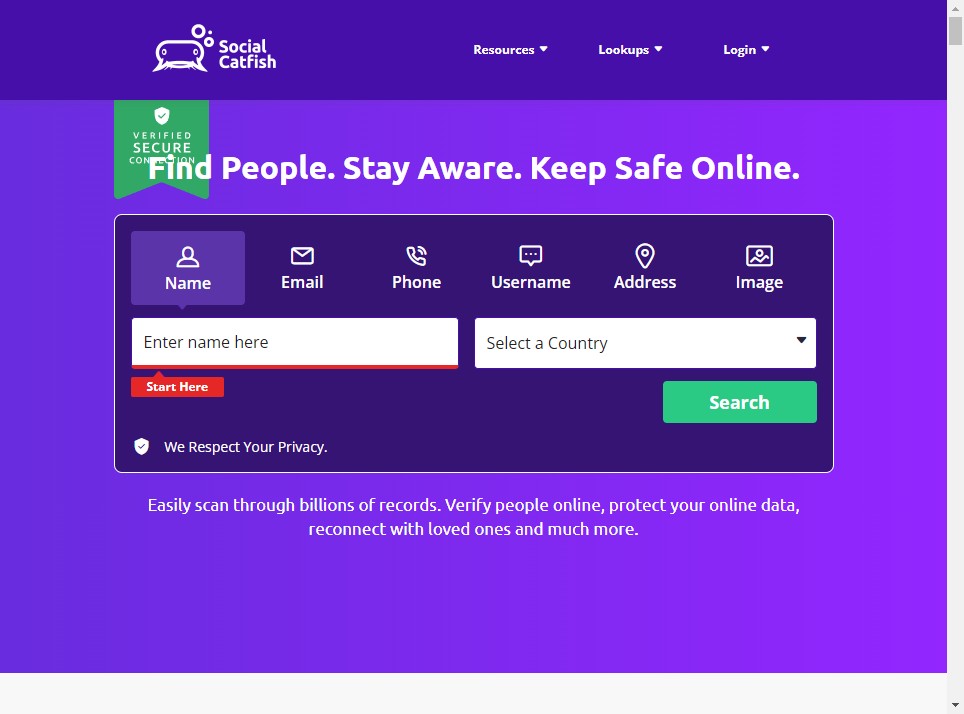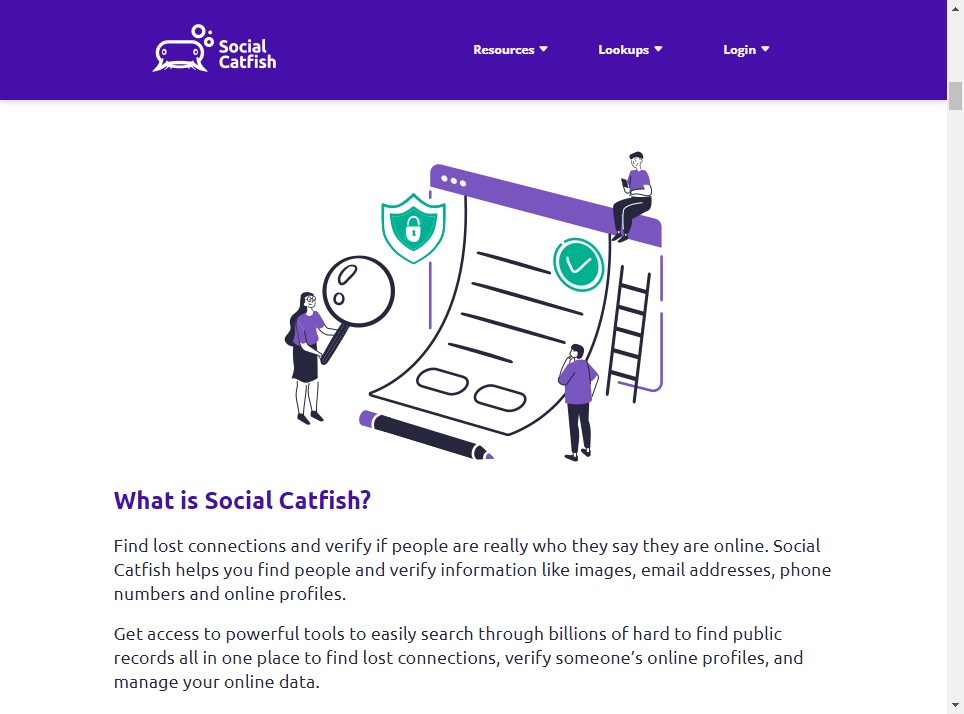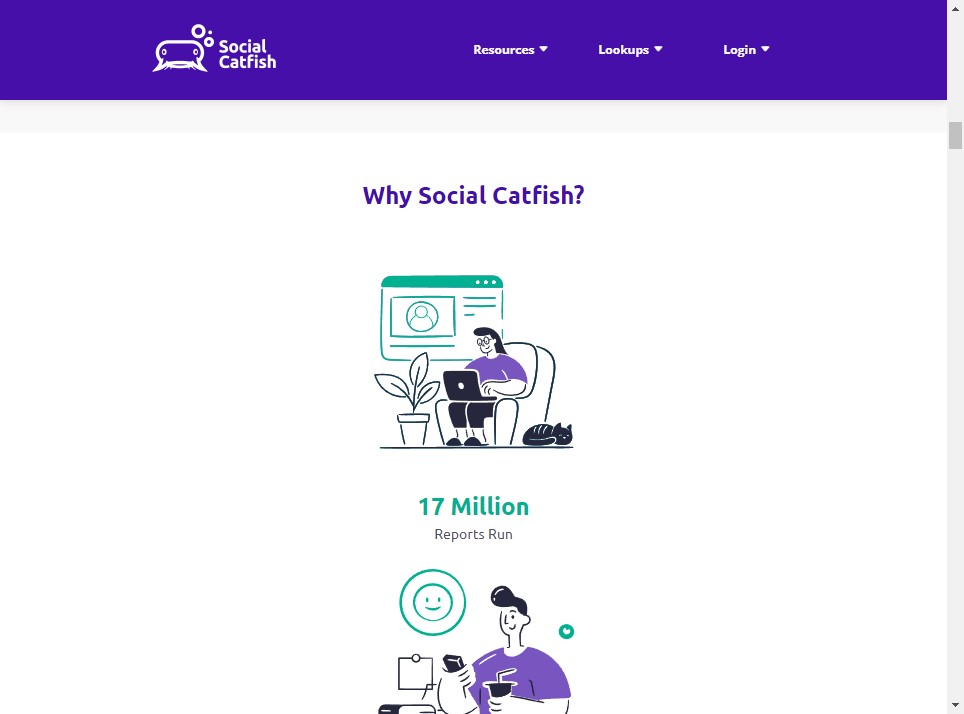Welcome to the digital age, where connecting with others is just a click away. But along with this convenience comes the lurking presence of online scammers, waiting to pounce on unsuspecting victims. In a world where trust can easily be manipulated and personal information exploited, it's crucial to arm yourself with the right tools to stay safe in cyberspace. That's where Social Catfish comes in – your ultimate ally in protecting yourself from scammers and fraudsters. Curious about how this innovative platform can keep you one step ahead? Read on as we explore the ins and outs of Social Catfish and discover how it can empower you in navigating the vast online landscape securely.
What is Social Catfish?
Social Catfish is not your typical feline companion, but rather a powerful online tool that specializes in uncovering the true identity of individuals you encounter on the internet. It acts as your personal detective, sniffing out potential scammers and catfishes who may be hiding behind false personas. Using advanced search algorithms and data analysis, Social Catfish scours the web to gather information about an individual's online presence.
With just a few clicks, you can enter someone's name, email address, phone number, or social media username into the platform's search bar. In seconds, Social Catfish combs through public records, social media accounts, dating profiles, and more to provide you with a comprehensive report on whether the person is genuine or if they're masquerading as someone else.
But what sets Social Catfish apart from other similar services? Well, while there are countless websites claiming to offer background checks or verification services, many fall short when it comes to accuracy and reliability. That's where Social Catfish shines – its commitment to providing accurate results backed by extensive data collection ensures that you receive trustworthy information.
So why should you care about using such a service? The answer is simple: self-protection. Whether you're venturing into online dating territory or conducting business transactions over the internet – being able to verify someone's identity helps prevent falling victim to scams or deceitful practices. By utilizing Social Catfish as your trusty sidekick in cyberspace adventures, you empower yourself with knowledge that keeps your personal safety intact.
Stay tuned as we delve deeper into how this formidable tool can help keep scammers at bay and arm yourself with essential strategies for staying safe online!
How Social Catfish Can Help You Stay Safe Online
Social Catfish is your ultimate weapon in the battle against scammers lurking online. With its powerful search algorithm and extensive database, Social Catfish can help you uncover the true identity of individuals hiding behind fake profiles or aliases.
One way Social Catfish keeps you safe is by conducting reverse image searches. This means that if someone sends you a photo claiming to be them, you can simply upload it to Social Catfish and find out if the image has been used elsewhere on the internet. This feature helps protect you from falling victim to catfishing schemes.
But Social Catfish doesn't stop at just photos – it also searches through social media accounts, email addresses, phone numbers, and usernames to provide a comprehensive report on an individual's online presence. By gathering all this information in one place, Social Catfish makes it easier for you to verify someone's identity before engaging with them further.
In addition to its search capabilities, Social Catfish offers valuable resources and tips on how to stay safe online. Their blog covers topics such as spotting red flags in online dating profiles, recognizing common scams, and protecting your personal information.
By utilizing the services provided by Social Catfish, you can arm yourself with knowledge and make informed decisions when interacting with others online. Stay one step ahead of scammers and protect yourself from becoming their next victim – trust in Social Catfish as your reliable ally in navigating the digital world securely!
What to do if You've Been Scammed
If you find yourself in the unfortunate situation of being scammed online, it's important to take immediate action. Here are some steps you can take to protect yourself and try to recover from the scam.
Don't panic. It's natural to feel scared and frustrated when you realize that you've been scammed, but maintaining a calm mindset is crucial. Take a deep breath and remind yourself that there are ways to resolve this situation.
Next, gather all the evidence related to the scam. This includes any emails, messages, or transaction records that you may have received or sent during your interaction with the scammer. Having this information will be helpful when reporting the scam and providing proof of what happened.
Once you have collected all the evidence, report the scam immediately. Contact your local law enforcement agency or file a complaint with your country's consumer protection agency. They will guide you through the process and investigate further if necessary.
It's also essential to notify your bank or credit card company about the fraudulent activity so they can freeze your accounts if needed and help prevent further damage. Change passwords for all your online accounts as an added precaution.
Educate yourself about common scams and share your experience with others so they can avoid falling into similar traps. Remember, knowledge is power when it comes to protecting yourself from scammers in today's digital world.
Stay vigilant and stay safe!
How to Protect Yourself from Scammers
In this digital age, it's more important than ever to protect yourself from scammers lurking online. By taking proactive measures and being vigilant, you can significantly reduce the risk of falling victim to their deceitful tactics. Here are some essential tips on how to protect yourself from scammers:
1. Be cautious with your personal information: Avoid sharing sensitive details like your full name, address, phone number, or financial information unless you trust the website or person completely. Scammers often use these details to impersonate you or commit identity theft.
2. Use strong and unique passwords: Create strong passwords for all your online accounts and avoid reusing them across different platforms. Consider using a password manager to keep track of your login credentials securely.
3. Think twice before clicking: Be wary of suspicious links sent through emails or messages, especially if they come from unfamiliar sources or seem too good to be true. These links often lead to phishing websites that aim to steal your personal data.
4. Keep your devices secure: Install reliable antivirus software on all your devices and ensure that they're regularly updated with the latest security patches and firmware updates.
5. Enable two-factor authentication (2FA): Adding an extra layer of protection by enabling 2FA adds an additional step for verification when logging into your accounts, making it harder for scammers to gain unauthorized access.
6.
Be skeptical of unsolicited offers: If someone contacts you out of the blue offering amazing deals or opportunities that require immediate action or payment, exercise caution as these could be scam attempts meant to deceive you.
7.
Report suspicious activity: If you come across any suspicious profiles, messages, or requests while interacting online, report them immediately to the respective platform so they can take appropriate action against potential scammers.
Remember that scammers are constantly evolving their techniques in order to trick unsuspecting individuals out of their hard-earned money and sensitive information. Stay informed about common scams circulating at any given time and stay up to date with the latest cybersecurity practices. By taking these





